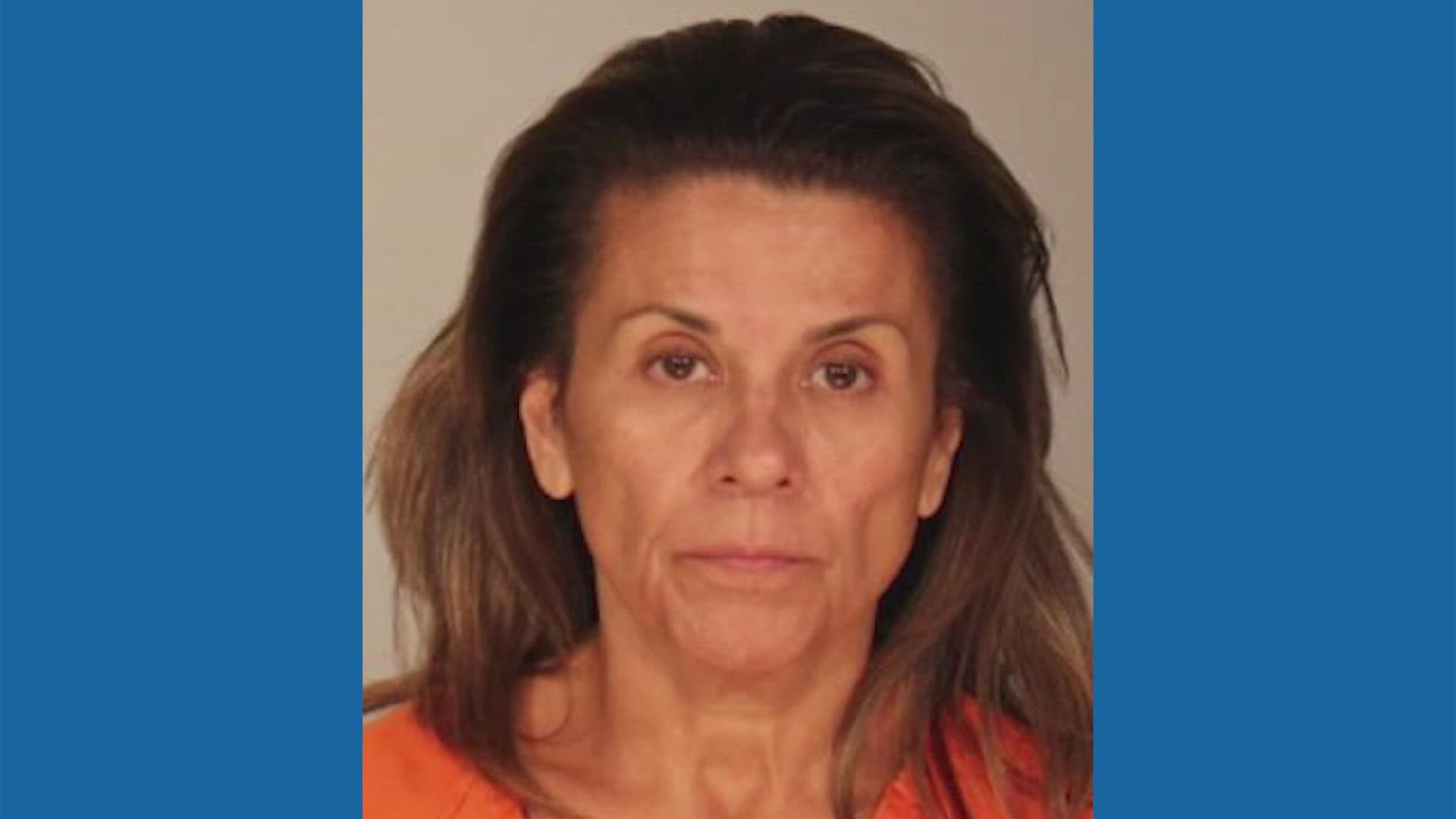PLANO, Texas — Plano Police insist they aren't taking lightly the viral video that shows a woman's racism-fueled attack on other women outside of a popular Plano restaurant on Wednesday.
In the clip, Plano resident Esmeralda Upton, who identifies herself as Mexican American, can be heard saying she "hates Indians" before getting physical with three Indian women in a parking lot.
On Thursday, as the video of the incident began widely circulating online, Plano Police arrested Upton on misdemeanor charges of assault (bodily injury) and terroristic threats. She was released on $10,000 bond Friday, but the incident is still being investigated by the Plano Police Department's Crime Against Persons Unit as a hate crime and more charges may be forthcoming, Plano Police said.
Warning: The video has some graphic and racist language.
In the meantime, Plano Police insist Upton's behavior isn't representative of the city they protect and serve.
Officer Andrae Smith not only currently serves as the public information officer for Plano Police, but he also oversees recruiting for the department -- a responsibility that also includes making sure the police department reflects the city when it comes to diversity.
"This is no indication of the tolerance that we allow in our city or the attitude that our citizens portray," Smith said.
Rani Banerjee, one of the women attacked in the video and named as the victim in the original charges, told police that Upton confronted her and her friends in the parking lot after a dinner at Sixty Vines, yelling racial slurs as well as physically attacking them.
"We were shocked by the racial slurs that she used and her very combative attitude," said Banerjee.
Plano officers took statements from all of the women in the video -- including Upton. The case then went to a detective, who eventually arrested Upton.
No one answered the door at Upton's home on Friday. Upton has not responded to WFAA's other requests for comment on her caught-on-camera actions.
Once the video of the attack went viral, Plano police took heat on social media for not arresting Upton right away when they responded to the call on Wednesday. Smith said there's a simple explanation for that.
"The police officer has to actually witness that offense," he said. "If he doesn't, the best thing he can do is gather all the facts and circumstances."
Upton is currently out of jail, but the continuing investigation and possible additional charges coming her way might just mean the parking lot incident is only the beginning of her legal problems.
"The citizens of Plano don't condone this conduct," Smith said. "The Plano Police Department, if it is a crime being committed and if it's predicated on hate, we're going to investigate it as such. We call balls and strikes. And there were other victims that were related to this offense. So additional charges may follow."
The Dallas Holocaust and Human Rights Museum released the following statement on Saturday, Aug. 27:
"The Dallas Holocaust and Human Rights Museum is deeply saddened by the hateful attack on a group of women of South Asian descent in Plano, Texas. Caught on video, the assault involved hateful rhetoric, physical assault, and threatened gun violence. This was a shocking display of the venomous power of racism and a sign of the deep divisions in our society.
The hate speech and physical assault directed toward the women reflects the deeply rooted prejudice and discrimination against Asian American and Pacific Islander (AAPI) communities that has surged in recent years. Unfortunately, this was not an isolated incident, earlier this month a Dallas County Grand Jury indicted the man accused in the shooting of three women of Korean descent at a Dallas hair salon in May with hate crimes.
We encourage learning about the rich history of AAPIs in America as well as the long-held intolerance and hostility directed against AAPI communities in our country. We urge people to act to challenge and disrupt this scourge of hatred. Our beloved Holocaust Survivor, Max Glauben, often said that hatred is like yeast that grows and consumes the hater. He implored us all to stand up against prejudice to keep it from destroying ourselves and our community. Let us honor his memory and legacy by doing all in our power to combat prejudice, hatred, and indifference.
We recently explored the historical and current context of this long-held bias in our Crucial Conversations series on challenging AAPI hatred, which is available on our DHHRM YouTube Channel. To help us all better understand AAPI identities, history, and the impact of discrimination against AAPI communities today, we created a tool kit that is available on our website.
The mission of the Dallas Holocaust and Human Rights Museum is to teach the history of the Holocaust and advance human rights to combat prejudice, hatred, and indifference. To learn more, visit www.dhhrm.org."

